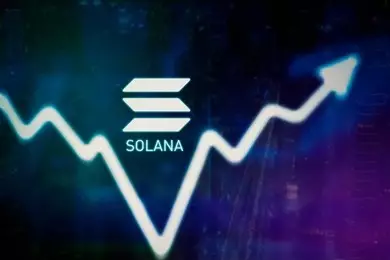Solana (SOL), a proof-of-stake blockchain, has recently launched version 1.16, bringing significant advancements in user privacy through the implementation of “Confidential Transfers.” This upgrade includes encrypted Solana Program Library (SPL) token transactions, ensuring confidentiality while prioritizing user privacy over anonymity. After ten months of development and an audit by Halborn, a blockchain security firm, the majority of Solana’s network validators have now adopted version 1.16. Solana’s infrastructure provider, Helius, has announced that the update went through rigorous testing, starting from June 7, 2023, where v1.16 was deployed on the testnet. The testing phase involved volunteer and canary nodes, successfully identifying and resolving any issues that arose.
To ensure a smooth transition and maintain consensus within the Solana network, the team employs a feature gate system. This mechanism prevents any consensus-breaking changes, guaranteeing that validators running older versions do not fork off from the canonical chain. Going forward, Solana Labs aims to adopt a more agile release cycle, with smaller updates scheduled approximately every three months. This approach allows for a more efficient implementation of new features and adjustments.
Confidential Transfers, introduced by Token2022, utilize zero-knowledge proofs to encrypt balances and transaction amounts of SPL tokens. By prioritizing user privacy, this feature emphasizes the secure transfer of confidential information. This enhancement aligns with Solana’s commitment to providing users with a high level of privacy and security.
According to a Nansen report, Solana has experienced remarkable growth in its Total Value Locked (TVL). Since the beginning of 2023, Solana’s TVL has nearly doubled, currently reaching an impressive 30.95 million SOL. While monthly transactions on the Solana network have remained relatively stable, there has been a notable increase in vote transactions, which encompass both vote and non-vote transactions.
Solana has also implemented innovative solutions to address prominent issues within its tech stack. State compression and isolated fee markets are among these forward-thinking solutions. State compression, in particular, has significantly reduced the cost of non-fungible token (NFT) minting on Solana by over 2,000 times. Before the introduction of state compression, minting 1 million NFTs would have cost approximately $253,000. However, with state compression enabled, the cost has drastically decreased to just $113. In comparison, minting a similar collection size on Ethereum would cost about $33.6 million, and on Polygon, it would amount to around $32,800.
The liquid staking landscape on Solana is rapidly growing, with leading platforms like Marinade Finance, Lido Finance, and Jito taking the forefront. Despite this growth, the amount of staked SOL in Solana’s liquid staking protocols still accounts for less than 3% of the total staked SOL, indicating substantial room for expansion. However, it is important to note that the Nansen report raises concerns about the uncertainty surrounding FTX/Alameda’s SOL holdings. FTX currently holds over 71.8 million SOL, representing about 17% of the circulating supply and 13% of the total supply. While this situation may introduce temporary risks to Solana’s growth trajectory, close monitoring of its impact is essential.
Despite any potential challenges, SOL, the native token of the Solana protocol, is consistently exhibiting substantial gains across various timeframes. At the time of writing, SOL is trading at $23.68, reflecting a remarkable increase of over 4% in the past 24 hours.
Solana’s recent update to version 1.16 brings enhanced user privacy through Confidential Transfers, utilizing encrypted SPL token transactions. This significant development aligns with Solana’s commitment to prioritize user privacy and security. Additionally, Solana continues to experience unprecedented growth in its Total Value Locked and has implemented innovative solutions to address crucial issues within its tech stack. While the liquid staking landscape on Solana presents substantial room for expansion, concerns regarding FTX/Alameda’s SOL holdings should be closely monitored. Despite the potential challenges, SOL’s price movements remain positive, indicating a promising future for the Solana ecosystem.


Leave a Reply